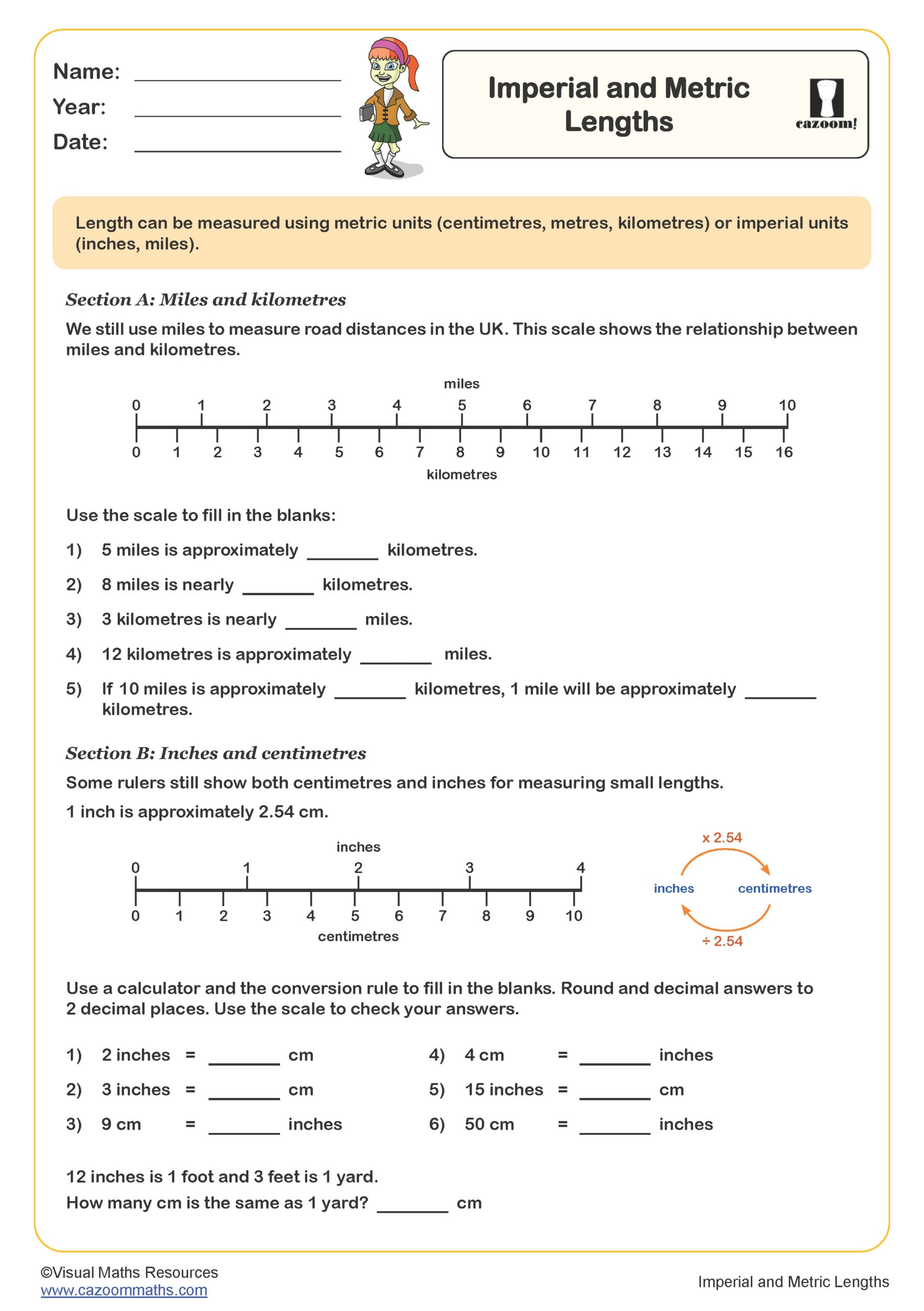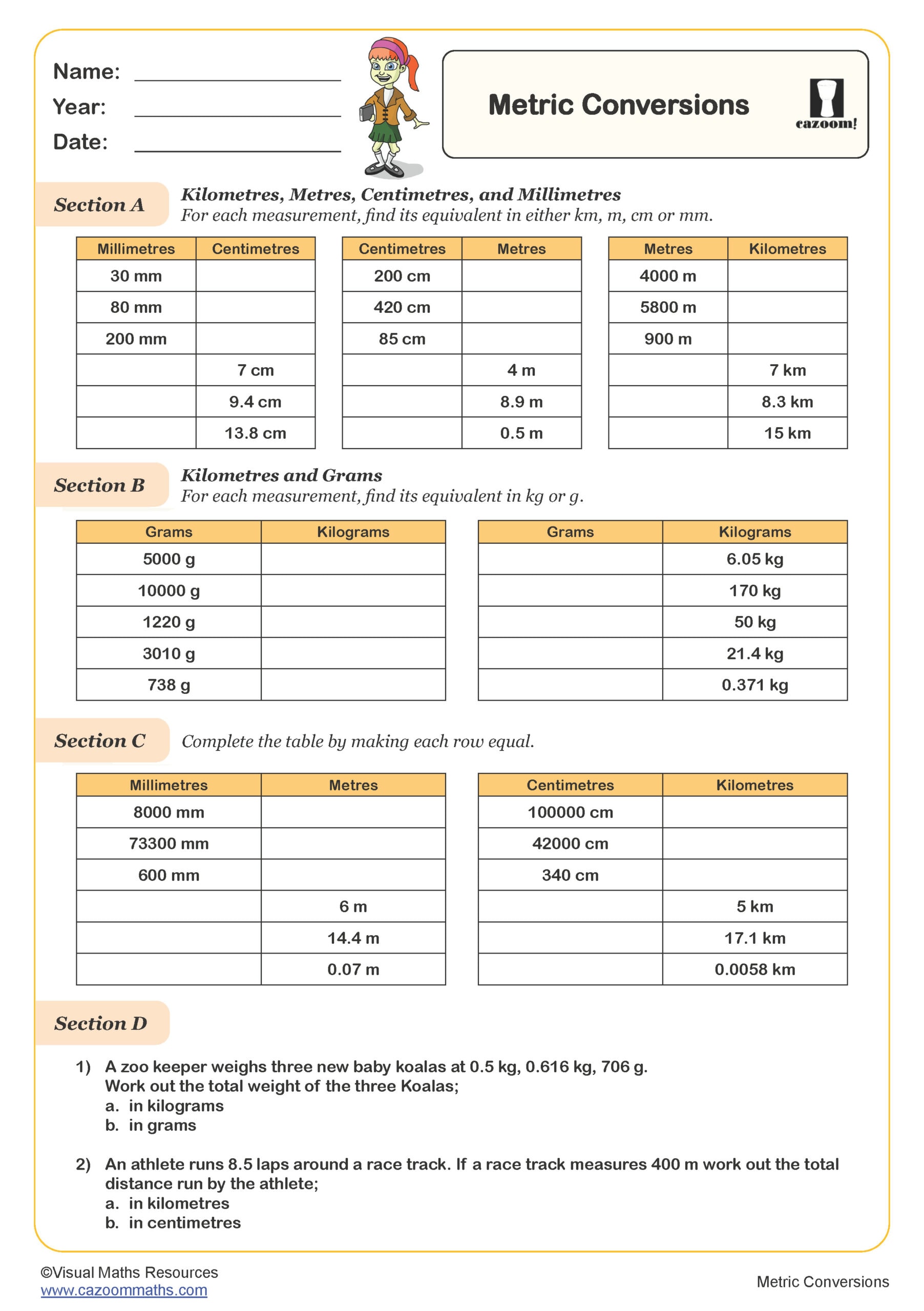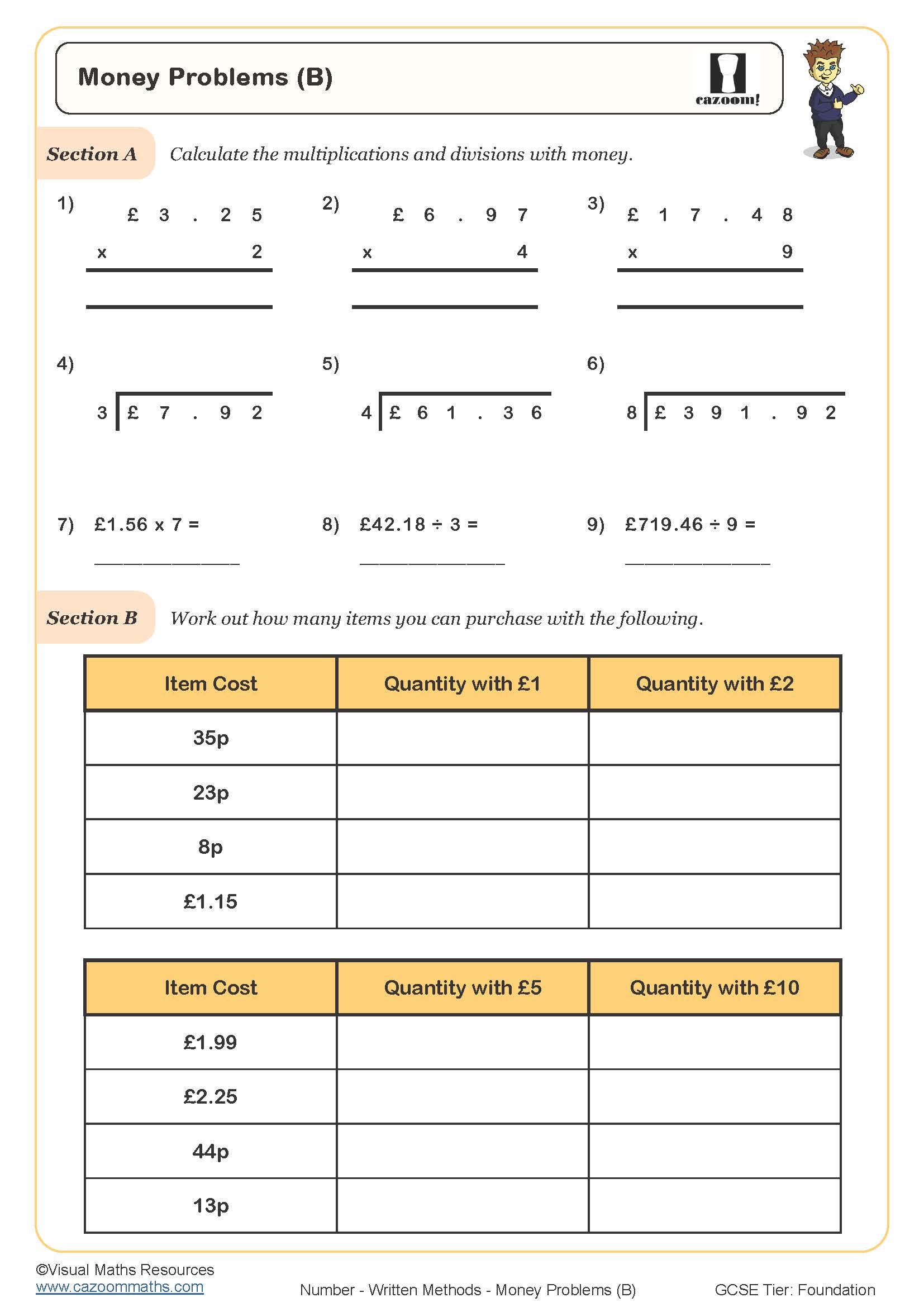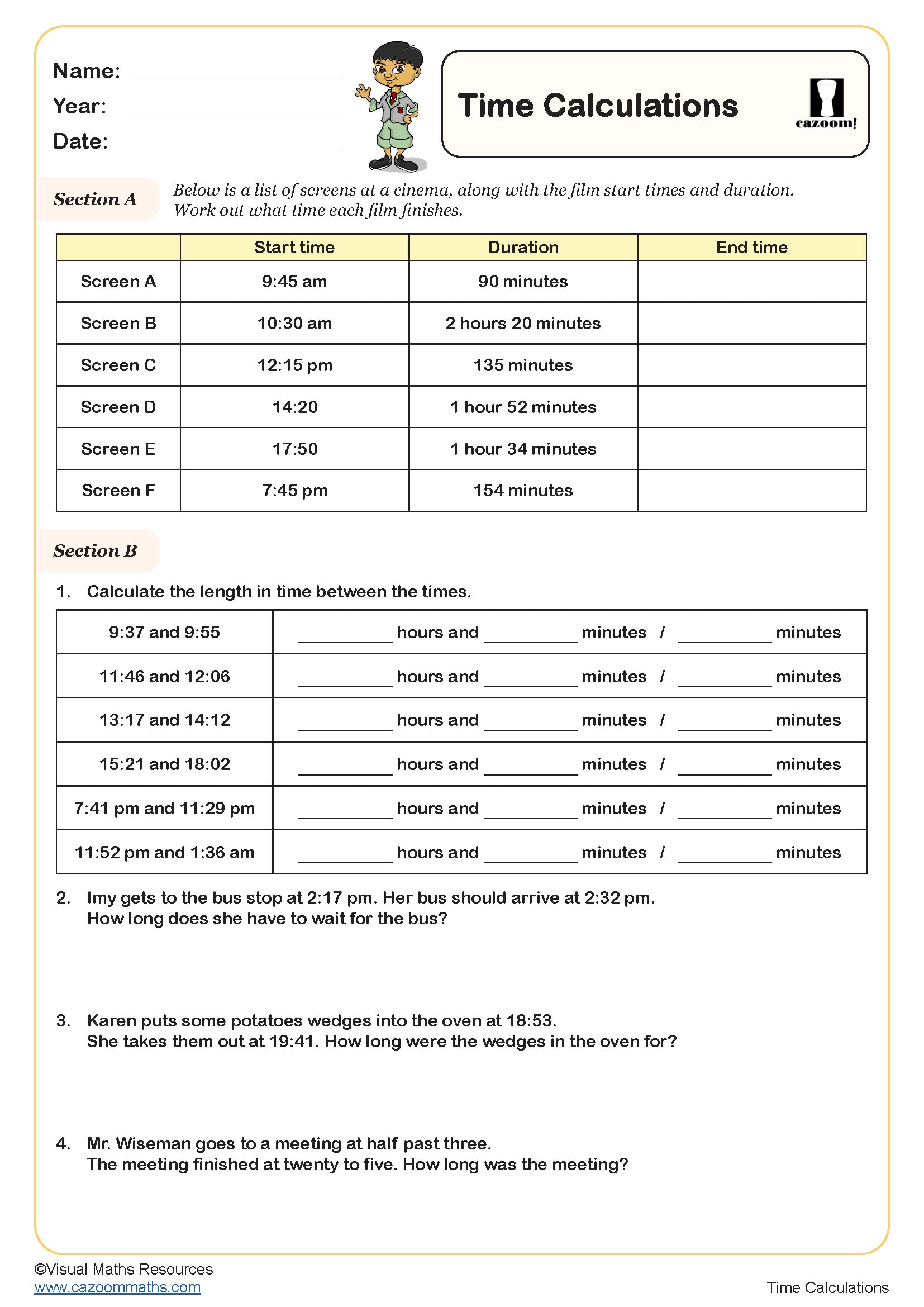Year 5 Measurement Worksheets
All worksheets are created by the team of experienced teachers at Cazoom Maths.
Year 5 Metric Conversion Worksheets with Step-by-Step Answer Keys
We have created these worksheets to bridge the gap in measurement knowledge between Year 4 and Year 5. Each activity focuses on specific measurement skills, including time calculations, finding the missing length from the perimeter, metric conversions, imperial and metric lengths, and much more. All of our primary school maths worksheets are created in ready-to-use, printable PDF formats and include separate and detailed answer sheets show complete working methods, helping students understand the thinking process behind each solution.
What Measurement Topics Are Included in These Year 5 Maths Resources?
With our UK curriculum-aligned measurement worksheets, your KS2 pupils progress from simple unit conversions through to calculating areas of rectilinear shapes and volumes of 3D objects. Students particularly enjoy the real-world problem-solving sections that make abstract concepts more meaningful and memorable. The activities include important measurement concepts like,
• Time calculations and conversions
• Perimeter and missing length problems
• Area calculations for rectangles and compound shapes
• Area estimation skills
• Imperial to metric conversions
• Standard metric unit conversions
• Money-related measurement problems
• 3D volume calculations using unit cubes
How Year 5 Measurement Practice Boosts Student Confidence and Performance
We have noticed that students who practice measurement conversions regularly perform significantly better in assessments and show improved spatial reasoning. The connection between hands-on measuring activities and mathematical understanding becomes evident quite quickly. These worksheets provide essential preparation for Year 6 challenges while building confidence with decimal measurements and complex calculations.
• Develops accurate measurement estimation skills
• Strengthens understanding of metric and imperial units
• Improves area and perimeter calculation abilities
• Builds confidence with volume and capacity problems
• Enhances decimal number work through practical applications
Where Do Students Actually Use Area, Volume and Measurement Skills?
Our measurement worksheets connect directly to design technology projects, science investigations, and geography studies. The skills transfer beautifully to cooking activities, sports measurements, and even planning bedroom furniture arrangements. It's actually quite satisfying when students realise they're using these mathematical concepts in everyday situations without even thinking about it.
• Planning and designing school garden plots using area calculations
• Calculating ingredient quantities for cooking and food technology lessons
• Measuring and recording data in science experiments and investigations
• Understanding map scales and distances in geography projects
• Estimating materials needed for art and craft activities
• Working out capacity requirements for sports drink preparations



